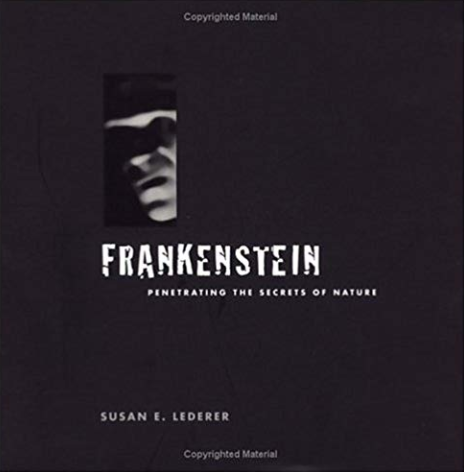Frankenstein: Penetrating the Secrets of Nature, by Susan Lederer
The organizers of a 1997 exhibition at the National Library of Medicine in Washington, D.C., wrote that the makers of the 1931 Frankenstein exploited a widespread belief in biological determinism “when they created a monster whose evil results from the lobes of his brain rather than his experiences or character” (Lederer 2002, 46).

About the book
As science penetrates the secrets of nature, with each discovery generating new questions, Mary Shelley's Frankenstein will sound its note of warning. Many scientific developments have provoked references to Frankenstein, a story that, for nearly two centuries, has gripped our imaginations and haunted our nightmares. How can society balance the benefits of medical discoveries against the ethical or spiritual questions posed?
Frankenstein: Penetrating the Secrets of Nature accompanies a traveling exhibit of the same name. This lavishly illustrated volume begins by highlighting Shelley's novel and the context in which she conceived it. It next focuses on the redefinition of the Frankenstein myth in popular culture. Here, the fate of the monster becomes a moral lesson illustrating the punishment for ambitious scientists who seek to usurp the place of God by creating life. The final section examines the continuing power of the Frankenstein story to articulate present-day concerns raised by new developments in biomedicine such as cloning and xenografting (the use of animal organs in human bodies), and the role scientists and citizens play in determining acceptable limits of scientific and medical advances. - Amazon
Frankenstein: Penetrating the Secrets of Nature on Amazon
Frankenstein: Penetrating the Secrets of Nature on Goodreads

Susan Lederer's profile at University of Wisconsin-Madison









































0 comments
Sign in or create a free account